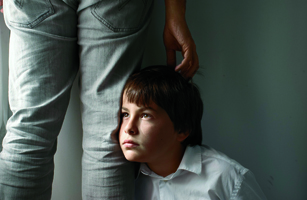
Age of Onset
Usually starts in the late teens or early adulthood but may hit young kids too. One study found that the share of children with bipolar is the same as the share of adults: about 1%.
When It's Nothing
Mood swings and extreme silliness or sadness are common among all kids. Even what seems to be a true manic state may be attention-deficit/hyperactivity disorder (ADHD), not bipolar.
When It's Something
Short temper, hyperkinetic speech, inability to focus and giddiness that doesn't quit may be signs of the manic phase of bipolar. Loss of appetite, energy and interest in things and too little or too much sleep may signal the depressive phase. Look for cycling between the two.
Treatment
Talk therapy helps kids regulate moods, especially when the family participates in the sessions. Drugs — mostly mood stabilizers, anticonvulsants and antipsychotics — are a part of treatment but can lead to side effects including weight gain and motor-control disorders. Children and adults with bipolar can often come off drugs for a time but typically must resume when symptoms do.